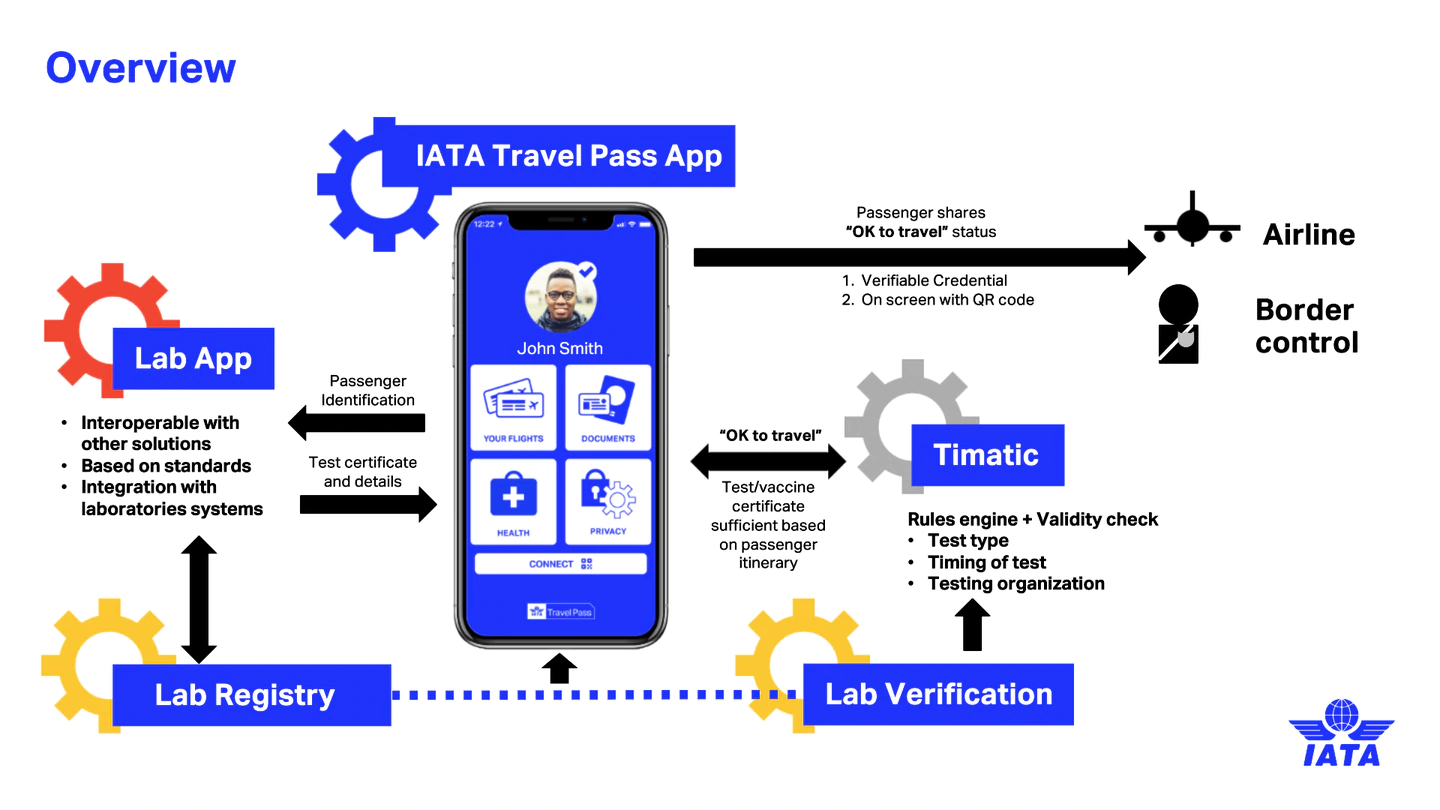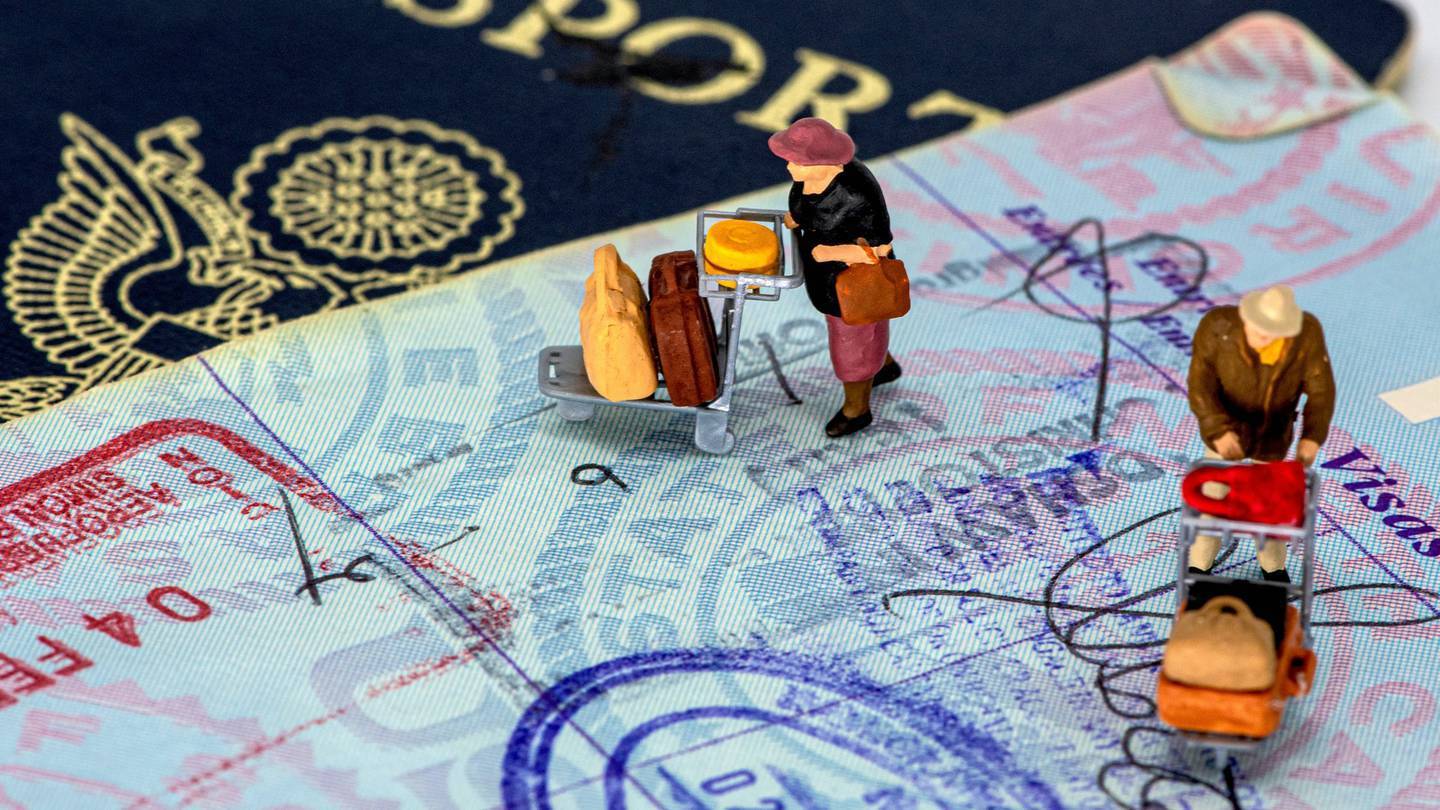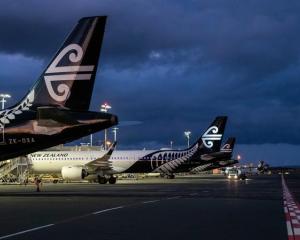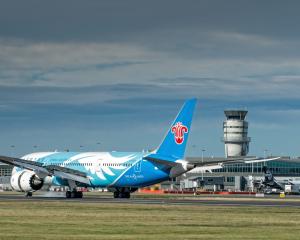On Monday Air New Zealand said it would be testing new health passports on its international services. This news has brought much excitement and yet more questions.
Using the digital health passport on its Auckland to Sydney service in April, the national carrier says it will be "among the first airlines in the world" to test the IATA system, which could be adopted worldwide.
But what is a health passport? And is it just another expensive travel document, liable to get lost through the wash in a jean pocket?
There are many aspects of IATA's Travel Pass that will be both familiar and new to travellers. However it is hoped that the health database managed by the International Air Transport Association might create a standard document for use by all international travellers – making a return to the skies as smooth and safe as possible.

There will be a few versions both physical and digital – however the version being used on flights out of Auckland will be a Contactless Travel App, saved to a smartphone.
IATA says there will be "paper-based alternatives for people who do not have mobile phones" however the system relies mostly on digital, not physical versions of the passport.
"It's essentially like having a digital health certificate that can be easily and securely shared with airlines," says Air New Zealand's chief digital officer Jennifer Sepull.
The app itself will be available via mobile app stores.
Android users may have to wait, however. Initially the Travel APP will be Apple iPhone users only, with the development timeline not launching the Android version of the passport until the second quarter of this year.
How much does it cost?
Nothing. At least the IATA says the app will initially be free to download and use.
The running costs will be covered by member airlines. The final costs are yet to be determined, but IATA says it will be as "low cost for airlines as possible". There may be costs associated with paper versions.
Why do we need another passport?
Most of us haven't looked at our passports for over a year now. However, the old book of travel is looking a bit dated and may not get you as far as it once did.
Experts predict that most countries will have some sort of covid-dependent entry requirements for visitors, when travel resumes. Up-to-date vaccination records, proof of recent negative PCR tests and other health requirements will need to be shared between governments, travellers and carriers.
All of which is a barrier to travel, and a bad thing for the 290 airlines that IATA represents.
Then there's the problem of a lack of standardised health certification across the 120 or so countries that IATA operates in. There's already a black market for forged Covid test results, exploiting the confusion from Paris's busiest airport to Brazil's resort islands.
The passport aims to create a digitally secure, contactless and – importantly – fast way to share up-to-date test information between passengers and airlines.
With both test results and travel plans being time-sensitive, speed is of the essence.

One of the biggest reasons for the passport is keeping tabs on Covid-19 vaccines - who's had which version of the vaccine, when and where.
IATA is firm that it is not up to them to demand passengers get vaccines, saying "governments decide the requirements to travel; airlines and passengers need to comply."
However some countries - and even airlines such as Qantas - have suggested they will refuse board to unvaccinated travellers.
If at any point Covid vaccination becomes an entry requirement for New Zealand or any other country, the Travel Pass could be the way of enforcing it.
How long will we need one?
The current Travel Pass is limited to sharing details of Covid 19 health history, but the Pass may be around long after the current pandemic.
Covid 19 will be with us for a long time, however IATA says its database could "be expanded if the situation requires", with subsequent pandemics or travel health requirements.
Why IATA?
IATA is far from the only player to propose an international health passport.
In November last year, China proposed a similar app based on an "internationally accepted QR code". The suggestion being that the running and maintenance of the Travel database would be a national project, run from Beijing.
However there was some unease with trusting a database to any one country. Likewise trusting a trade association which has previously been accused of being a 'World Aviation Cartel', is equally unappealing for some. In its 75 years of operation, IATA has at points been accused of not operating in passengers' best interests.
However, the Travel Pass is something that will have to balance the interests and share information between governments, airlines, laboratories and passengers.
Interestingly the QR-code suggestion appears to have been adopted by the IATA Passport app, which will be needed not only at check-in but also to link identity at vaccination and test centres.
With separate apps for each of these four end users, it will be IATA which holds the keys to the database and the new Health Passport. IATA has shown an ambition to take on other travel requirements and manage existing or future health risks as they emerge.
It is likely to be a travel requirement long after the Covid pandemic passes.













